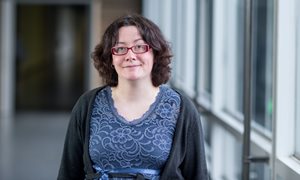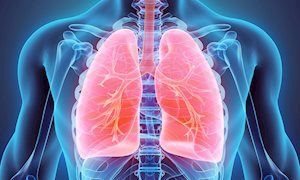23 March 2017
To prospectively examine changes in social functioning among adolescents and young adults in the first two years after a cancer diagnosis, Olga Husson, PhD, of the Radboud University Medical Center in The Netherlands, and her colleagues asked patients at five US medical institutions to complete a survey around the time of diagnosis and again at 12 and 24 months later. The study included 141 cancer patients aged 14 to 39 years at the time of diagnosis. At all timepoints studied, social functioning for patients was worse when compared with population norms. Although it improved somewhat over the first year following diagnosis, social functioning remained significantly lower compared with population norms after 24 months. The authors also examined the different trajectories of social functioning over time, and found that one in three of the cancer survivors reported consistently low social functioning across all timepoints. These patients were more often not receiving treatment, which may reflect the challenges of transitioning from cancer patient to survivor, including concerns about negative impacts on finances, body image, work goals, relationships, and plans for having children. In addition, survivors scoring consistently low on social functioning reported more physical symptoms and higher levels of psychological distress. They also perceived themselves to receive less social support. “Reducing physical symptoms and psychological distress and enhancing social support by interventions in the period after treatment may potentially help these young survivors to better reintegrate into society,” said Dr. Husson.
Publication in Cancer
 Adolescence and young adulthood is a challenging period of physical, emotional, cognitive, and social development, and a cancer diagnosis and its treatment can compound these challenges for young patients.
Adolescence and young adulthood is a challenging period of physical, emotional, cognitive, and social development, and a cancer diagnosis and its treatment can compound these challenges for young patients.
To prospectively examine changes in social functioning among adolescents and young adults in the first two years after a cancer diagnosis, Olga Husson, PhD, of the Radboud University Medical Center in The Netherlands, and her colleagues asked patients at five US medical institutions to complete a survey around the time of diagnosis and again at 12 and 24 months later. The study included 141 cancer patients aged 14 to 39 years at the time of diagnosis. At all timepoints studied, social functioning for patients was worse when compared with population norms. Although it improved somewhat over the first year following diagnosis, social functioning remained significantly lower compared with population norms after 24 months. The authors also examined the different trajectories of social functioning over time, and found that one in three of the cancer survivors reported consistently low social functioning across all timepoints. These patients were more often not receiving treatment, which may reflect the challenges of transitioning from cancer patient to survivor, including concerns about negative impacts on finances, body image, work goals, relationships, and plans for having children. In addition, survivors scoring consistently low on social functioning reported more physical symptoms and higher levels of psychological distress. They also perceived themselves to receive less social support. “Reducing physical symptoms and psychological distress and enhancing social support by interventions in the period after treatment may potentially help these young survivors to better reintegrate into society,” said Dr. Husson.
Publication in Cancer
-
Want to know more about these subjects? Click on the buttons below for more news.
Related news items

Giesje Nefs receives fellowship from the Diabetes Fund
10 January 2022 Diabetes technology - such as insulin pumps, closed loop systems, sensors, smart insulin pens - is evolving enormously. But there are also concerns, or false expectations. Giesje Nefs wants to gain more insight into this so she can help people make their choice. read more
KWF grant for better selection of individuals and lung nodules in lung cancer screening
1 November 2021 The Dutch Cancer Society has awarded the consortium project ‘Multi-source data approach for Personalized Outcome Prediction in lung cancer screening’ with a grant of 1,425,000 Euro. Colin Jacobs will lead the work package on using artificial intelligence for accurate risk estimation of lung nodules. read more
Radiation boost lowers risk of prostate cancer recurrence
21 January 2021 An additional external-beam radiation dose delivered directly to the tumor can benefit the prospects of men with non-metastatic prostate cancer, without causing additional side effects. The risk of relapse within five years for these men is smaller than for men who did not receive this boost. read more
650,000 Euro funding for research into the phasing out of medication for leukaemia patients
30 July 2020 With a 650,000 euro funding from ZonMw, researchers from the Haematology and Pharmacy departments can develop a medication phasing out strategy for patients with chronic myeloid leukaemia. This strategy will be tested in practice. read more
Improved method for detecting lung cancer
24 July 2020 Radboudumc researchers are the only ones in the Netherlands using a new method to make better lung cancer diagnoses earlier stage. Erik van der Heijden and Roel Verhoeven shows that the use of flexible imaging equipment via the natural respiratory tract contributes to a more accurate diagnosis. read more
